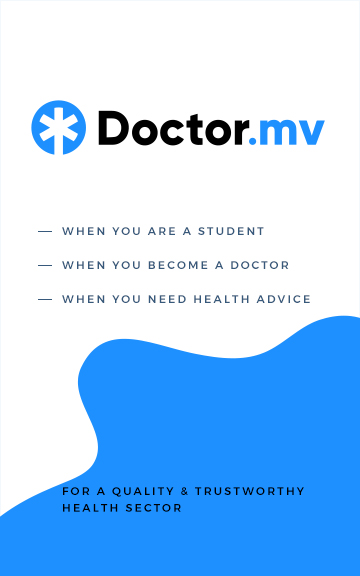
Let’s face it, as Medical students, you always push your health and well-being to the back burner.
Studies, exams, your senior’s approval and assisting with research papers takes priority. Your aim is to get high grades, so that you can not only make yourself, but also your parents proud.
Hence, you lose focus on what is really important. Your health.
How many hours of sleep do you usually get at night? Does the food you consume have high nutritional values? Are you even eating on a regular basis or do you frequently skip meals? Why are you practicing the habits that you will advise your future patients not to do?
In this article, I will outline tips that you can use to improve not only your physical health, but also mental health, as you tackle the high demands that come with being a Medical student.
1. Why should you put your health as the top priority?
Before we get into the nitty-gritty of what you should do, let’s start at why you should it.
Most of you study Medicine for around 4-7 years, aspiring to graduate at the top of the class.
As a future doctor, you are the best person to understand the toll that bad habits can have on one’s health. Despite the fact that most of you are young, your age does not exempt you from lifestyle diseases.
What if (and I hope that this is not the case) you were diagnosed with a disease that was precipitated by poor stress management, sedentary lifestyle and/or poor nutrition.
You are hospitalized for days so you miss out on school, setting you back about a year. Or worse, your poor decisions lead to death, so you are not even able to reap the hard work that you sowed. Dark, isn’t it?
Take this as a warning of what could happen if you don’t take the extra minutes a day to focus on your physical and mental health.
2. Nutrition
This really goes without saying. Nutrition is important, which is shown because it is one of the main studies in Medical school. Let me reiterate what you all know, but apply it to the situation that you are in:
a. Eat more fruits and vegetables
About half of our plate should be fruits or vegetables, and the next half should be split between protein and starch.
However, a huge problem that some of you face is the high cost that comes with eating healthy.
Therefore, what is recommended is that you either search for a cost-effective restaurant that sells nutritious meals, or you can prepare your food from home and carry it with you. The choice is yours.
b. Stay hydrated
Your brain is probably the most used tissue in your body during school. The fact is that the brain (and of course the body) thrives on water since it is mostly composed of water.
H2O helps with concentration, cognition and memory; all primary functions that you require during your studies.
Therefore, it is advised that you download an app on your phone that alerts you when to drink water. At times, you are so busy during rounds, duty or surgery that you forget to stay hydrated.
Furthermore, carry a water bottle with you to school and refill it when you get the opportunity.
If you want to read more on the benefits that water has on the brain, click here.
3. Exercise
Needless to say, exercise boasts many benefits. Let me provide a few examples.
With exercise, there is the release of happy hormones, dopamine and serotonin. There is regulation of blood pressure, and there is an increased production of HDL, high-density lipoprotein, which helps to decrease the build-up of 'bad fats'.
Moreover, it has a positive effect on the function of the brain, a Medical student's most used tissue.
The benefits that come with exercise are endless.
But yet, you haven't run in months. The most exercise you have gotten is running from one emergency to another, or standing for long hours during ward rounds.
No, there is more that needs to be done.
If the reasons provided didn’t convince you, you can read this article.
4. Have time for hobbies
Some of you are probably thinking, "Why do I need hobbies? Medicine is my hobby."
You need hobbies to keep you sane. You need it to build your confidence in other skills and it also shows that you are a well-rounded individual.
It reduces negative stress and helps you to socialize with other people outside of Medicine, which will make you aware of what else is happening in the world.
As Medical students, we are sometimes wrapped up in our own med-bubble, and the world will pass us by. So, it is advised that if you don’t have a hobby yet, to find one and partake in new activities that interest you.
However, if you already have a hobby, that’s good, just keep at it.
It was Stan Jacobs that said, “To be happy in life, develop at least four hobbies: one to bring you money, one to keep you healthy, one to bring you joy and one to bring you peace.”
With that being said, just aim to pick up at least one hobby.
5. Manage your stress
Medical students suffer from this common issue and it comes mainly in three different forms: financial, emotional and physical.
a. Financial stress
Everyone knows that Medicine is one of the most expensive university programs. But what people don’t know is that it is not only the wealthy or the exceptionally brilliant that attend Medical school.
People assume that you either have wealth to support you financially or you are so smart that you are able to acquire a scholarship that covers all your expenses.
But what about the persons that are not rich and not that smart/lucky to get an already-limited scholarship?
Hence, the source of your stress.
The solution is not really that black and white.
It is recommended that you solve your specific financial issues without risking your physical and mental health in the process.
b. Emotional stress
You experience emotional stress from all directions during your training.
For example, your seniors talking down to you for not remembering the mechanism of action of valproic acid. Or trying to remember all the cranial nerves in time for your Anatomy exam.
Or even the pressure that your family and loved ones put on you to succeed.
All of these can take a toll on one’s emotions.
Bear in mind, that you shouldn’t allow these events to affect you mentally. Eventually, it will pass so don’t stress it.
c. Physical stress
Standing for 6 hours during ward rounds. Hectic days that run late into the night. Running errands for your seniors, so you can gain their approval.
All of this can wear down someone’s strength. It is important that you remember to rest. And if the need is there, take an entire day for yourself and try to recuperate.
6. Sleep
To elaborate further on the tip stated above, sleep is necessary for everyone, especially for those of you who have very taxing days.
Similar to exercise, healthy eating and developing your hobbies, getting sleep also has its benefits.
According to the National Sleep Foundation, an adult requires about 7-9 hours of sleep a day.
Even better, it is proven that with sleep comes improved memory function, longer attention span and better cognition. Again, all of these are necessary for your studies.
In addition, like exercise and eating healthy, sleep has benefits that extend to the entire body. You can read more here.
7. Spend time with loved ones
Loved ones are the relatives and friends that care for you. Persons that you can rely on and provide you with a strong support system.
As we all know, Medical school is not a walk in the park. You will come upon obstacles and struggles that drain your physical and mental strength. This is where your support system comes in.
These are the people that have your best interest at heart. They are there to lend an ear and provide you with great advice.
What’s more, without even realizing it, just by sharing your problems with someone else, you will feel less burdened.
That is why, it is important to keep in touch with your relatives, especially when you are studying in a foreign country.
Also, you ought to find great friends in your programme who understand the issues you have, since they, themselves are facing it as well.
With great friends, you can joke about certain situations that you are in and, then, later discuss the methods you can use to overcome them.
8. Take care of your spiritual needs
As Muslims, we believe in a God, to whom we bring our troubles to. We are to pray 5 times a day and fast in the month of Ramadan.
Taking care of your spiritual needs has proven to have great benefits on your mental health.
9. Take a personal (me) day
As stated in a previous tip, sometimes you have to take a day off for yourself just to recuperate. I will expound on that further by providing ways in which you can make the best of your ‘me-day’.
Instead of studying or practicing your physical examinations, you can incorporate all the tips that were given above and use it in an entire day.
For instance, you wake up, after getting your full 8 hours of rest, then you exercise for 30 minutes followed by prayer and meditation.
After that, you consume a healthy, filling breakfast coupled with a tall glass of water.
Next, you practice your hobby, something that you love, or you can spend the day with friends and family.
Just remember to use the day to do something for yourself that you weren’t able to do because of work or studies.
10. Remember that Medicine is not everything
Lastly and most importantly, you must remember, for your own benefit, that Medicine is not everything.
If you don’t pass or get the grade that you want, remember that it is not the end of the world. With failure comes growth, hence your skills in this field will improve.
And if you realize that Medicine is not for you, there are far more opportunities that will come your way in various other disciplines.
Now, you may be thinking that you have to succeed because your family expects you to. But please remember, that you should always put yourself first. If you don’t wish to continue studying Medicine, then do something else that you love.
Conclusion
All of these tips were compiled to provide you with the best advice on how to improve your health as a Medical student.
You are faced with so many struggles in Medical school. As a result, you put your physical and mental health last on your priority list.
However, what you need to keep in mind is that your health should be the most important thing.
Remember to sleep more, exercise, eat a balanced diet and stay hydrated. Also, remember to keep in touch with your support system and never forget your spiritual needs.
If you take these guidelines into account, you will live a healthier and more prosperous life.
Did we miss out anything? Let us know below.



Leave a comment
0 Comments